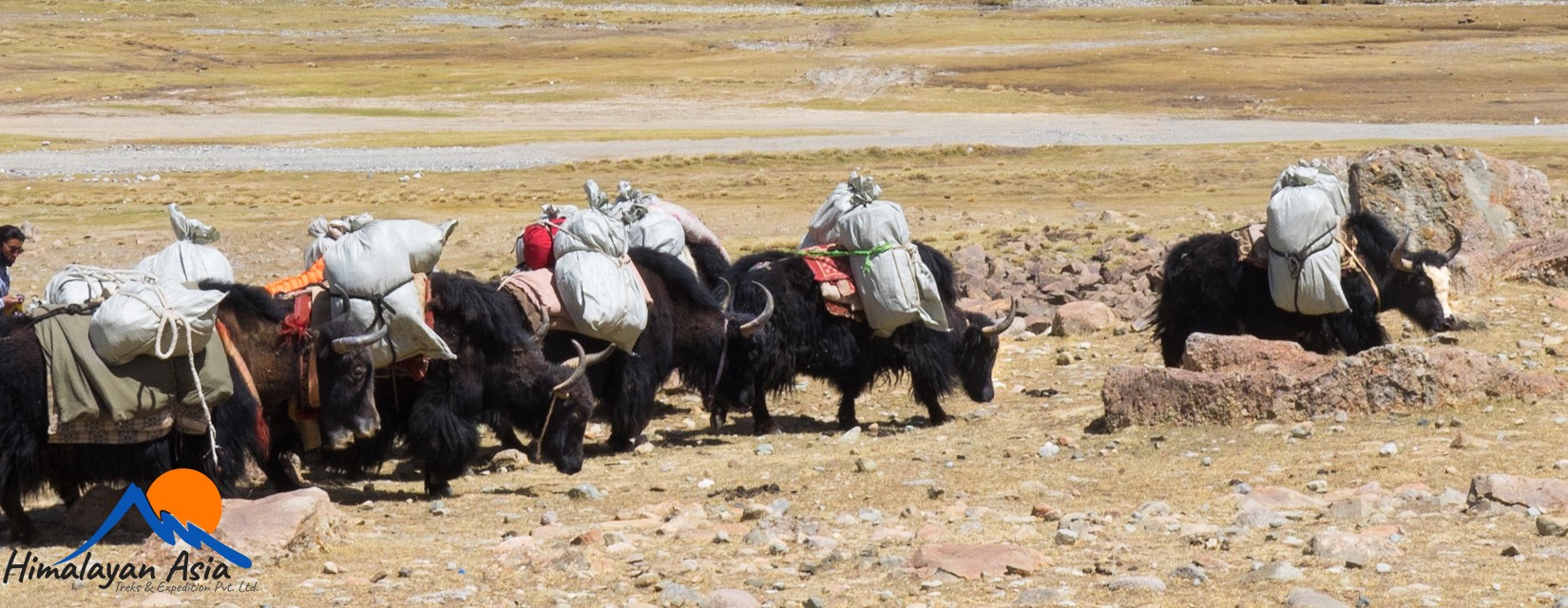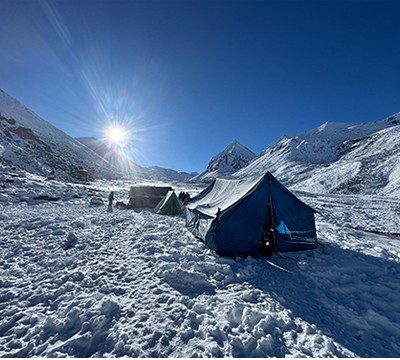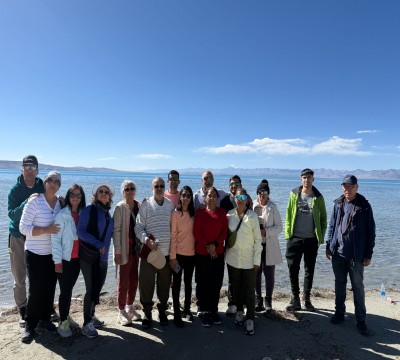Mt Kailash Saga Dawa Festival Tour information 26 May - 02 June 2026
The Saga Dawa Festival, often referred to as "the Poor's Day," stands as a significant and revered celebration in the Tibetan calendar, held annually on the 15th day of the fourth month. This auspicious day marks the birth, enlightenment, and passing away (Parinirvana) of Lord Buddha, Siddhartha Gautama. The festival holds profound cultural and spiritual significance, observed with deep reverence and joyous festivities across Tibet and among Tibetan communities worldwide.
At the heart of Saga Dawa lies the commemoration of Buddha's birth, emphasizing the teachings of compassion, kindness, and mindfulness that he imparted to the world. Devotees engage in various acts of merit-making, seeking to accumulate positive karma and express gratitude for Buddha's teachings. The essence of this celebration lies in acts of generosity, altruism, and spiritual reflection.
Among the vibrant locations to experience the essence of Saga Dawa, Lhasa emerges as a cultural epicenter. The streets and monasteries of Lhasa bustle with fervent activities, from prayer gatherings to vibrant processions adorned with colorful banners and fluttering prayer flags. The atmosphere brims with spirituality and devotion, creating a mesmerizing spectacle for locals and visitors alike.
For a profoundly spiritual experience, pilgrims often journey to Mount Kailash, a sacred site revered in multiple religious traditions. The mountain's towering presence and serene surroundings offer an ideal backdrop for meditation, prayers, and ritualistic circumambulation known as kora, where devotees walk around the sacred peak, reflecting on Buddhist teachings and seeking blessings.
During Saga Dawa, a significant transformation occurs in dietary practices among local Tibetans, with many adopting a vegetarian lifestyle as an expression of reverence and compassion for all sentient beings. This act of abstaining from meat consumption echoes the Buddhist principle of non-violence and fosters a sense of harmony with the environment.
The vibrant Cham Dance, a traditional ritualistic performance, becomes a focal point of festivities at monasteries like Tsurphu and Drigung Til during Saga Dawa. This mesmerizing dance, adorned with ornate costumes and intricate masks, symbolizes the triumph of good over evil and serves as a visual representation of Buddhist teachings.
For both devout Buddhists and curious travelers, witnessing the Cham Dance offers a glimpse into the rich tapestry of Tibetan culture, spirituality, and artistic expression.
In essence, the Saga Dawa Festival intertwines spirituality, cultural celebrations, and acts of compassion, uniting devotees in a collective pursuit of enlightenment, mindfulness, and the embodiment of Buddha's teachings. Whether amidst the bustling streets of Lhasa or in the serene landscapes of Mount Kailash, the festival stands as a poignant reminder of the enduring legacy of compassion and wisdom that Buddha left for humanity.
What does Saga Dawa celebrate?
Saga Dawa, a significant festival in Tibetan Buddhism, celebrates the life, enlightenment, and passing of Gautama Buddha. Observed during the fourth month of the Tibetan lunar calendar (usually around May or June), Saga Dawa holds immense spiritual significance among Tibetan Buddhists. The entire month, especially the full moon day, marks important events in the Buddha's life: his birth, enlightenment, and nirvana (passing away). It is a time for devout Buddhists to engage in virtuous deeds, practice compassion, and reflect on the teachings of Buddha.
What is Saga Dawa 2026?
Saga Dawa 2026 signifies a particularly auspicious and spiritually potent occasion within this festival. While each Saga Dawa holds its unique significance, 2024 might be anticipated for its alignment with the lunar calendar, which occasionally corresponds with celestial events or astrological alignments. Devotees often view such instances as times when the spiritual energy and the effects of their actions are amplified, emphasizing the importance of positive deeds and spiritual practices during this period.
What is the story of Saga Dawa?
The story of Saga Dawa intertwines with the life of Buddha Siddhartha Gautama, who was born as a prince in Lumbini (now in Nepal), attained enlightenment under the Bodhi tree in Bodh Gaya (India), and achieved nirvana at Kushinagar (India). During Saga Dawa, Buddhists commemorate these pivotal moments in the Buddha's life by engaging in acts of generosity, prayer, meditation, and abstaining from negative actions. It's believed that virtuous deeds performed during this month carry greater significance and bring about more profound spiritual merit.
Which festival is celebrated in Tibet?
Tibetan Buddhism, deeply rooted in Tibetan culture and history, holds Saga Dawa in high regard. The festival is celebrated across Tibet with fervor, where monasteries organize grand ceremonies, prayer sessions, and processions. People hang prayer flags, light butter lamps, and participate in charitable activities such as releasing animals to symbolize compassion and liberation. The entire region pulsates with a sense of spiritual devotion and community during this festival, underscoring the essence of compassion, mindfulness, and enlightenment that Buddhism preaches.
Why is Saga Dawa Important in 2026?
Saga Dawa in 2026 holds extra spiritual significance as it falls on a highly auspicious full moon date (31st May 2026). According to Tibetan belief, any good karma or spiritual acts like prayers, donations, and pilgrimages performed during this time are multiplied 100,000 times. In 2026, a large number of pilgrims are expected to participate in kora (circumambulation) around sacred sites, especially Mount Kailash, making it an especially important pilgrimage year and known as Wood Horse Year was 2014, and the next will be 2074.
How Many Days is Saga Dawa in Tibet?
The Saga Dawa Festival in Tibet is observed throughout the entire fourth month of the Tibetan lunar calendar. However, the main celebration occurs on the full moon day, known as Saga Dawa Düchen. While the main day is most significant, many spiritual activities, prayers, and rituals continue for 30 days.
Which State in Tibet Celebrates the Most Important Saga Dawa Festival?
The Saga Dawa Festival in Tibet is most prominently celebrated in Ngari Prefecture, especially around the sacred region of Mount Kailash in Western Tibet. Thousands of Tibetan Buddhists and international pilgrims gather at Mount Kailash Saga Dawa Festival to perform the kora (pilgrimage circuit). The festival also involves raising a giant Tarpa Pole (prayer flag pole) at the base of the mountain.
What is the Saga Dawa Festival in Tibet?
The Saga Dawa Festival in Tibet is one of the most sacred and significant religious festivals in Tibetan Buddhism. Celebrated during the fourth month of the Tibetan lunar calendar—usually in 31 May 2026 —Saga Dawa commemorates three key events in the life of Lord Buddha: his birth, enlightenment, and Parinirvana (death). This holy month, especially the full moon day called Saga Dawa Duchen, is regarded as a time of spiritual merit and compassion. Many pilgrims travel to Mount Kailash and Lhasa to take part in rituals, prayers, and kora (sacred circumambulation).
How to Celebrate Saga Dawa in Tibet?
Celebrating Saga Dawa in Tibet involves deep spiritual devotion. Tibetans observe the festival by performing kora around sacred sites such as Mount Kailash, Jokhang Temple, and Potala Palace. Pilgrims walk clockwise while chanting mantras and spinning prayer wheels. Many Buddhists practice non-violence by refraining from eating meat and releasing animals into the wild as an act of compassion.
During this holy month, people also engage in acts of generosity like donating to monasteries, offering butter lamps, and helping the poor. Special pujas (prayers) are conducted in monasteries and temples. The famous flag-raising ceremony at Tarboche near Mount Kailash is a highlight of Saga Dawa celebrations.
What Do People Eat on Saga Dawa?
On the day of Saga Dawa, many Tibetans follow a vegetarian diet to accumulate merit and practice compassion. Common vegetarian Tibetan foods consumed during Saga Dawa include:
- Tingmo (steamed Tibetan bread)
- Tsampa (roasted barley flour)
- Thenthuk (vegetable noodle soup)
- Momos (vegetable dumplings)
- Butter tea made with yak butter and salt, sometimes served without butter for a lighter taste
In keeping with the Buddhist principle of non-harming, meat is avoided, and many Tibetans abstain from alcohol and other indulgences during this period.



